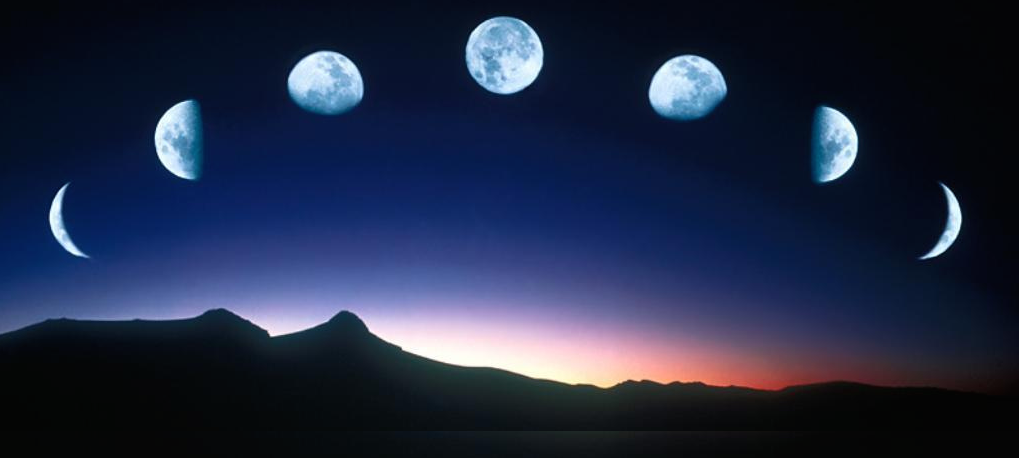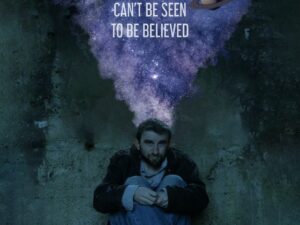
By Dr. Helen Marshall, General Director of the Centre for Science Fiction and Fantasy
This was adapted from the keynote delivered at the Virtual Futures Salon hosted by Near-Future Fictions under the auspices of Stephen Oram and Luke Robert Mason.
*
 Thank you very much for inviting me here today and thank you to the organization team who have put together such an amazing line-up of speakers, particularly Stephen Oram and Luke Mason.
Thank you very much for inviting me here today and thank you to the organization team who have put together such an amazing line-up of speakers, particularly Stephen Oram and Luke Mason.
My name is Helen Marshall and I’m a writer and lecturer at Anglia Ruskin University as well as the general director of the new Centre for Science Fiction and Fantasy, a research network whose goal is to study the formation of science fiction and fantasy within the publishing and entertainment industries as well as to champion it to a wider audience, people who may not have thought about how science fiction might be a useful tool for understanding their lives.
I wanted to begin with a quotation from T. S. Eliot’s poem, “Little Gidding”:
For last year’s words belong to last year’s language
And next year’s words await another voice.
And to make an end is to make a beginning.
The evening’s theme is “Interrogating the Future” which seems particularly appropriate for a period of time in which the future seems to be a giant, scary question mark.
I come at this talk from a somewhat strange perspective, I suppose. I was one of the people – and likely not the only person in this room – who woke up on November 9, 2016 in what seemed to be an alternate reality. I remember logging on that morning and experiencing almost a doubling of vision, as if the universe had split into two tracks that were radically diverging from one another. There was a hallucinatory space of about a week where I still felt as if I could see another world layered underneath mine. I felt shock and disorientation, not a little fear—but also bewilderment at the fragility of the norms and traditions I had come to understand to be bedrocks of reality.
My point in this is not to rehash politics and to vent frustration but to look at this experience critically as a way of thinking about what literature—especially the literature of ideas, the literature of science fiction—is and what it ought to do.
A week ago a friend pointed me in the direction of Junot Diaz’s excellent article on the earthquake in Haiti which was published in The Boston Review. He writes of the etymology of the word apocalypse, which means “to uncover and unveil.” There are three kinds of apocalypses, he argues: there are the those that follow the actual imagined end of the world; there are those the comprise catastrophes which resemble the imagined end; and there are those disruptive events that provoke revelation. The apocalypse, he says, quoting James Berger, “is the End, or resembles the end, or explains the end.”
We are, by all accounts, no matter where we might fit ourselves in the political spectrum, in an apocalyptic moment. We are witnessing the end of something, or an event that resembles it; we are searching for an account that can explain that end.
On November 9 I had the privilege of teaching a group of MA Short Story writers at my university. It was an evening class. The students had always been a lively bunch, eager, full of questions and comments and jokes and affection for one another. I felt at a loss at how to address them. One colleague had told me not to talk about Trump, to just leave it out of the room, but that seemed impossible. Still, I didn’t know what to say.
It struck me as interesting, though, that despite all the anger and anguish I saw on Facebook and Twitter—as if, to quote Obi Wan Kenobi, a million voices were all crying out at once—people were turning to literature for consolation—and for answers. People were discussing 1984 and Brave New World; they were quoting from Margaret Atwood’s Handmaid’s Tale; they were welcoming each other to the Hunger Games.
So I told my students the only thing I could reasonably think of to say in the situation, a phrase Ben Markovits, from Royal Holloway, had said: that the purpose of teaching creative writing is, on the one hand, to help students to become published (in the best cases)—but in all cases, regardless of the quality of the writing, it was to help students to become better witnesses to the world. And that is what we all are. We are all witnesses to the world. The tools of storytelling can help us, in this respect: they help us to understand our world, to observe it, to process it. This is a fundamentally imaginative act and it is an act with great power—the power to witness.
We are living in an apocalyptic moment and we have a duty to be witnesses. We have a duty to observe, to imagine, to speculate, and to create.
Science fiction is a genre that knows about the apocalypse.
I have a new PhD student named Chandra Clarke, and her project argues that although much recent science fiction has been dystopian, we need alternative visions of the future to help us find better ways forward. It is easy to forget that we are also witnessing the beginning of something, a moment whose direction has not yet been fully determined. And the reader of science fiction is, I think, in the best possible position to take advantage of this. That reader’s mind has been shaped by the exploration of imaginative worlds, by possible futures, by alternative pasts. The science fiction reader is adept at finding himself—or herself—in a strange new land.
And yet when I find myself speaking to writers of science fiction the one thing I have heard most frequently is how very different the landscape of writing feels at the moment. Our readers don’t have the same shared assumptions about reality that we might have counted on a year ago. It seems impossible to write without acknowledging this change.
Gary Dunion on Twitter cleverly captured the zeitgeist by pulling together a number of headlines screengrabbed from the Guardian’s feed of “most viewed” articles that day:
- Suspect in North Korea killing “thought she was taking part in TV prank”
- Robert Mugabe could contest election as corpse, wife says
- German parents told to destroy doll that can spy on children
His caption? Season 4 of Black Mirror is coming along nicely…
Indeed.
The Twitter account for Black Mirror states: “Our job is to explain what’s happening to you as best we can.” As we have seen in the last eighteen months, it is becoming increasingly difficult to distinguish between fact and fiction. I can only imagine the problem is going to get worse.
And so I go back to T. S. Eliot:
For last year’s words belong to last year’s language
And next year’s words await another voice.
And to make an end is to make a beginning.
This reminds me of an article written by the brilliant but provocative Jonathan McCalmont about the state of weird fiction.
Weird fiction is a strange beast, an eclectic genre, or subgenre. It originated at the turn of the century with the works of authors including Edgar Allan Poe, Arthur Machen, and M. R. James, amongst others and has since developed to includes new writers such as China Mieville, M. John Harrison and others. Weird fiction is notable for its generic uncertainty; it is a blend of science fiction and horror (perhaps!) or of literary fiction and horror (perhaps!) or of Lovecraft and whatever happens to be floating close to hand at any given moment (perhaps!).
Michael Kelly of Undertow Press invited me to be the series editor for the fourth volume of Year’s Best Weird Fiction which reprints material published from the previous year, and so I have needed to grapple with what weird fiction is…
In “Notes on Writing Weird Fiction,” Lovecraft stated that his desire in writing weird fiction was to “achieve, momentarily, the illusion of some strange suspension or violation of the galling limitations of time, space, and natural law.”
He said:
These stories frequently emphasise the element of horror because fear is our deepest and strongest emotion, and the one which best lends itself to the creation of nature-defying illusions. Horror and the unknown or the strange are always closely connected, so that it is hard to create a convincing picture of shattered natural law or cosmic alienage or “outsideness” without laying stress on the emotion of fear. The reason why time plays a great part in so many of my tales is that this element looms up in my mind as the most profoundly dramatic and grimly terrible thing in the universe. Conflict with time seems to me the most potent and fruitful theme in all human expression.
In this respect, weird fiction seems a perfect vehicle for exploring our present moment. For it does seem to us, I think, to many of us, anyway, that time is out of joint; are we moving back to the happy utopia of the 1950s? Are we moving toward the dystopia of 1984? Are we returning or progressing? We do not know. We cannot decide. And the possibilities are not so much divergent as layered overtop of one another. We are existing in multiple moments at most, in multiple times at once.
And it is scary.
Ann and Jeff VanderMeer, in their introduction to The Weird compendium recognize the murky taxonomy of weird fiction writing:
Because The Weird often exists in the interstices, because it can occupy different territories simultaneously, an impulse exists among the more rigid taxonomists to find The Weird suspect, to argue it should not, cannot be, separated out from other traditions.
Weird fiction then is used to this strange overlapping, this occupation of simultaneous moments at once. When I asked my students to give me a personal definition of weird fiction there was one – Marian Womack, a wonderful short story writer who had appeared in a previous volume—who had the most interesting answer.
She said:
We have a long tradition of this in Spain, and this only increased during the dictatorship as new symbolic ways of communicating ideas were rehearsed in narratives (cinematic and literary). This kind of fantasy, in which “something is not quite right”, lends itself very well to Gothic sensibility, with its convoluted use of language and its tormented heroes. And then there is an element of irrationality built into the rational and, coming from a Spanish background, I interpret this as surrealism, for me this is a major element I recognize in weird writing, and one that is present in my own understanding of the weird.
This definition struck me as capturing the essence of the weird tale, the embedding of irrationality within the rational: a way of writing which uses the one to expose the other, to make the reader realise that all rational systems are ultimately irrational.
It is a revelatory mode of writing, an apocalyptic mode of writing.
But Jonathan McCalmont! McCalmont traces the history of the resurgence of weird fiction in the twentieth century. In particular, he focuses on several months in 2003 when the TTA Press message boards were alive with a great discussion about the nature of the “New Weird”.
The discussion was prompted in part by the success of Mieville who published The Scar in 2002 and received critical acclaim in the British Fantasy Award and Locus Awards of 2013. The topic of discussion was the rise of a new type of writing that seemed to have links with the past, but the forum conversations were riven with disputes as to the act of naming. M. John Harrison succinctly summed up the problem:
If I don’t throw my hat in the ring, write a preface, do a guest editorial here, write a review in the Guardian there, then I’m leaving it to Michael Moorcock or David Hartwell to describe what I (and the British authors I admire) write.
There was a distinct suspicion of the rise of both the conventional and commercial frameworks which tended to define new “waves” of writing historically and which would go on to attempt to define the nature of the so-called New Weird.
In describing the discussions that took place on that message board, Jonathan McCalmont said something that really struck me:
Every cultural entity (be it a genre, a sub-genre, a scene, a movement, or a school) is born of a particular place and time… a sudden awareness that the wider culture has changed and that the old tools are no longer up to the job.
I believe we are in one of those moments. The old tools of writing no longer seem up to the job. As T. S. Eliot, said, “last year’s words belong to last year’s language / And next year’s words await another voice.”
The language I have found for myself is the language of weird fiction, which, in my mind, speaks to the irrationality of our present, floundering systems. We are living in weird times; we are either seeking to recall a distant, glorified past while we simultaneously rocket toward an uncertain future, with little in the way of maps to guide us.
We need new tools to interrogate the future. We need a new language to understand it, to articulate our concerns, our hopes, our dreams—our possibilities.
The faculty at Anglia Ruskin University put together the Centre for Science Fiction and Fantasy as a way to articulate the value of these genres, which have not always enjoyed the critical and popular appeal they have today.
Science fiction has long provided a way of looking toward the future. It is not intended to predict the future although sometimes it does this. The point of science fiction is to contemplate the future, to renew our hope and our willingness to act—and act wisely. It questions what it means to be human.
I want to end with a story, or a capsule of a story. This comes from the story “Day of Wrath” published by Sever Gansovsky in 1964 and translated recently by James Womack for The Big Book of Science Fiction, edited by the VanderMeers.
Writing at the height of the Cold War, Gansovsky was keenly interested in the absurdities and ruthlessness of human nature. In this story, a biological experiment results in human-like creatures called the Otarks with superior intellectual abilities that terrorize the Russian countryside. A journalist travels to observe the Otarks and quickly finds himself at their mercy. In his final account he begins an article for his newspaper titled: ‘What is a Man?’
His optimism, which he had been so proud of, was in the final analysis the optimism of an ostrich. He had just buried his head when it came to the bad news. He read about executions in Paraguay in the newspapers, or about famine in India, but spent his time thinking about how to get money to buy new furniture for his large five-room apartment, or how he might be able to win the good opinion of some important person or other. The otarks—the otark-people—shot crowds of protestors, speculated on the price of bread, prepared wars in secret, and he turned away from it all, pretending that nothing of the kind ever happened.
From this point of view, all of his past life suddenly seemed strongly connected with what was now happening to him.
As the journalist approaches his death, he contemplates the final words of his dead companion:
Maybe it’s a good thing that the otarks have appeared. Now it will become clear what it means to be a man. Now we will all know that to be a man it is not enough to be able to count and to study geometry. There’s something else.
The story ends with a chilling conclusion: humanity has defined itself on the basis of its intelligence, and thus established its dominion over other animals. But if a new race were created, a race of even greater intelligence, how then would humanity define itself? If we were forced to do so, what qualities and attributes would we align ourselves with?
The Otarks are, of course, a metaphor; but they are not only a metaphor. They are a way of posing a question we do face today—just as we faced it in the 1960s: how will science and technology force us to rethink who we are and how we relate to the wider world?
Science fiction is the language of imagining, the language of interrogating. Of asking uncomfortable questions, of challenging dominant ideologies. Of exploring the future, anticipating it, changing it.
We are all witnesses to the world. It is up to us to find our new language, knowing that to make an end is also to make a beginning.
*
Dr Helen Marshall is an acclaimed writer, editor and book historian. She is the Lecturer for Creative Writing and Publishing at Anglia Ruskin University as well as the General Director for the Centre for Science Fiction and Fantasy. Collectively, her works have won the World Fantasy Award, the British Fantasy Award, the Aurora Award from the Canadian Science Fiction and Fantasy Association, and the Shirley Jackson Award for outstanding achievement in the literature of psychological suspense, horror and the dark fantastic. She is presently editing The Year’s Best Weird Fiction (Undertow Press, 2017).


